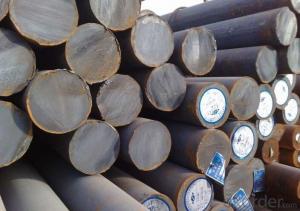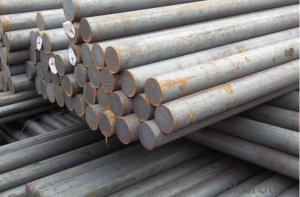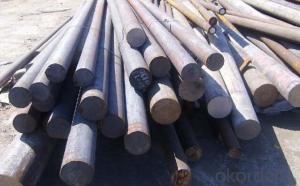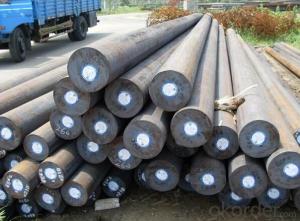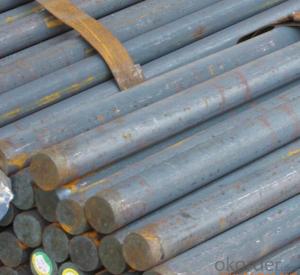SKD11 Hot rolled steel rod price,1.2379 steel round bar
- Loading Port:
- Tianjin
- Payment Terms:
- TT OR LC
- Min Order Qty:
- 3 m.t.
- Supply Capability:
- 10000 m.t./month
OKorder Service Pledge
OKorder Financial Service
You Might Also Like
Item specifice
Hot Rolled Mild Steel Round Bar Q235 Q345 Q355
Name | SAE1045 Carbon Steel Round Bar |
Shape | Round Bar/Square Bar/Flat Bar/Plate/Wire |
Standard | GB/ASTM/SAE/AISI/DIN/JIS/EN/BS |
Surface Treatment: | Black/Peeling/Polished/Machined |
Delivery Condition: | Hot Rolled or Forged/Peeled or Black Surface |
Test | SGS/UT 100% Elements Testing |
Certificate: | ISO/Mill Certificate |
Service: | 24 hours online service / |
more than 20 years trading and manufacture | |
Quality Assurance: | the third party inspection, such as SGS, BV, TUV…etc. is acceptable |
Packaging Details: | seaworthy packaging or as per customer's packing instruction |
Chemical Composition
C | Si≤ | Mn≤ | P≤ | S≤ | Cr | Mo | V |
1.40~1.60 | 0.4 | 0.6 | 0.030 | 0.030 | 11.0~13.0 | 0.80~1.20 | 0.20~0.50 |
Features of skd11 steel
(1) Good quenching resistance, heat deformation small, wear-resistant, impact resistant.
(2) Vacuum degassing refining processing pure steel.
(3) Spheroidizing softening process, good cutting performance.
(4) Strengthen the elements vanadium, molybdenum special join, is extremely excellent in wear resistance.
Packaging & Delivery
Packaging Detail | Sea worthy packing /as per customer's packing instruction |
Delivery Detail | 15 ~ 40 days after receiving the deposit |
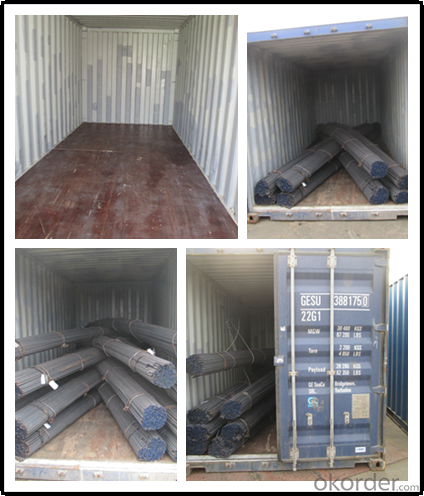
Product Show
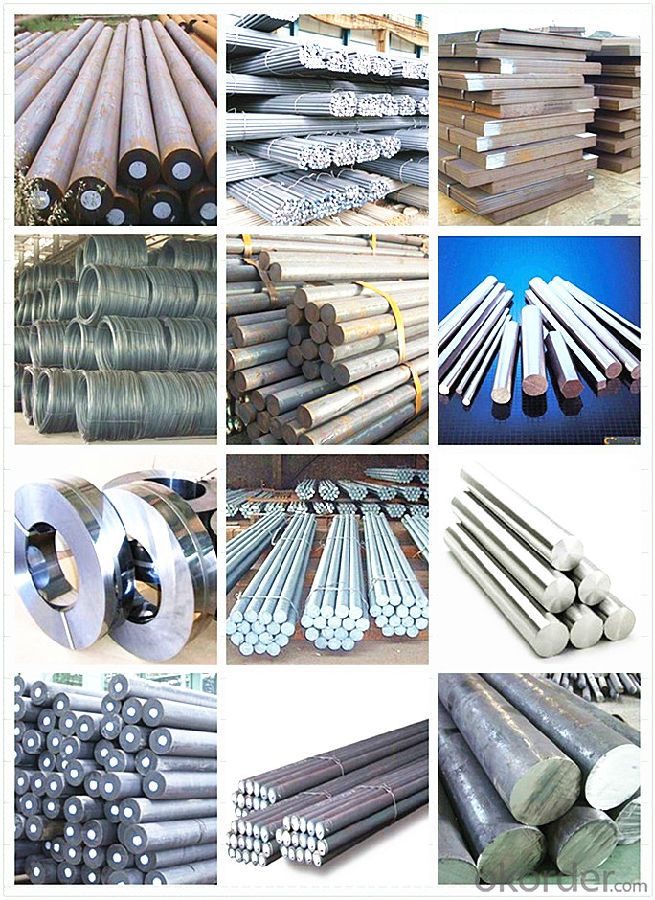
Workshop
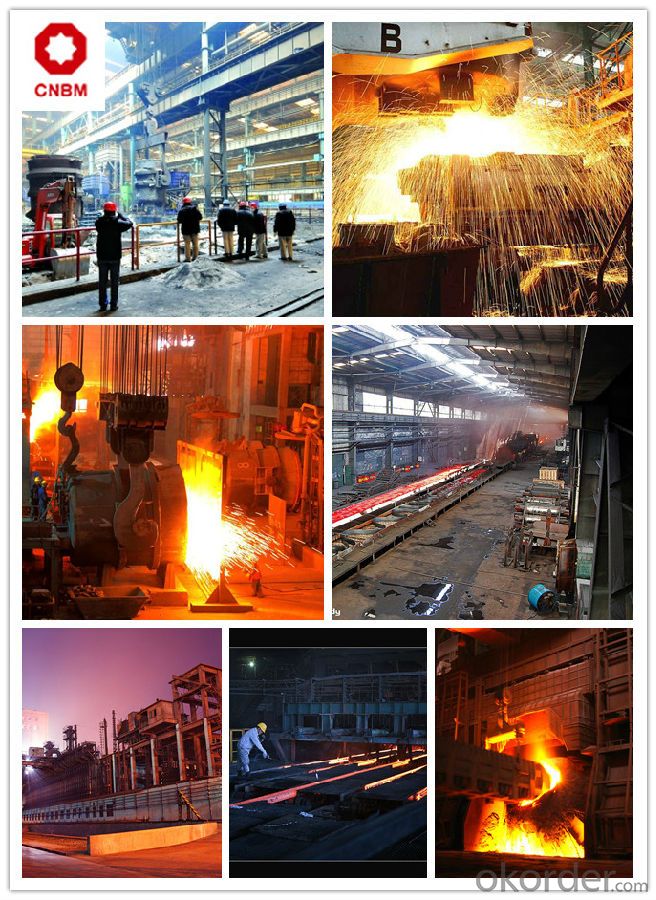
FAQ
Are you a trading company or manufacturer? | Manufacturer |
What’s the MOQ? | 3 metric ton |
What’s your delivery time? | 15-35 days after downpayment received |
Do you Accept OEM service? | Yes |
what’s your delivery terms? | FOB/CFR/CIF |
What's the Payment Terms? | 30% as deposit,70% before shipment by T/T |
Western Union acceptable for small amount. | |
L/C acceptable for large amount. | |
Scrow ,Paybal,Alipay are also ok | |
Why choose us? | Chose happens because of quality, then price, We can give you both. |
Additionally, we can also offer professional products inquiry, products knowledge train (for agents), smooth goods delivery, excellent customer solution proposals. | |
What's your available port of Shipment? | Main Port, China |
What’s your featured services? | Our service formula: good quality+ good price+ good service=customer's trust |
Where are your Market? | Covering more than 160 countries in the world |
- Q:What are the challenges in machining special steel?
- Machining special steel presents several challenges due to its unique properties. Firstly, special steel is known for its high hardness, which makes it difficult to cut and shape without proper tools and techniques. Additionally, special steel often contains alloying elements that increase its strength and resistance to wear, but also make it more prone to work hardening and heat buildup during machining. This requires careful selection of cutting parameters and cooling methods to prevent tool wear and surface damage. Furthermore, the presence of impurities or non-metallic inclusions in special steel can cause tool chipping or premature failure, necessitating the use of specialized tooling and processes. Overall, the challenges in machining special steel lie in its hardness, work hardening tendencies, heat generation, and the need for precision tools and techniques.
- Q:Can special steel be used for luxury goods?
- Yes, special steel can definitely be used for luxury goods. Special steel, known for its exceptional durability, strength, and unique properties, can be utilized in the production of high-end luxury goods such as watches, jewelry, knives, and even high-performance vehicles. Its superior quality and aesthetic appeal make it an ideal choice for manufacturers seeking to create luxurious and exclusive products.
- Q:What are the common techniques for testing the quality of special steel?
- Several techniques are commonly used to test the quality of special steel, ensuring that it meets the necessary specifications and standards for its intended use. Among the most prevalent methods are: 1. Chemical Analysis: This technique involves analyzing the steel's composition to determine the concentration of different elements present. By conducting chemical analysis, it is possible to ensure that the steel contains the necessary elements in the desired quantities and to identify any impurities that might impact its quality. 2. Tensile Testing: Tensile testing is utilized to measure the strength and elasticity of steel. It entails subjecting a sample of the steel to an increasing load until it breaks. This helps establish the maximum stress the steel can endure before failure, providing valuable insights into its mechanical properties. 3. Hardness Testing: The purpose of hardness testing is to assess a steel's resistance to indentation or penetration. It aids in evaluating the steel's strength and its ability to withstand wear and deformation. Common hardness testing methods include the Brinell, Rockwell, and Vickers tests. 4. Microstructure Examination: Through microstructure examination, the internal structure of the steel is analyzed under a microscope. This technique helps identify the presence of defects such as inclusions, voids, or improper grain structure. Additionally, it provides information about the steel's overall quality and its heat treatment. 5. Non-Destructive Testing (NDT): NDT techniques are widely employed to test the quality of special steel without causing damage to the material. Ultrasonic testing, magnetic particle testing, liquid penetrant testing, and radiographic testing are some examples of NDT methods. These techniques enable the detection of surface or internal defects, cracks, and discontinuities that may compromise the steel's integrity. 6. Impact Testing: Impact testing measures a steel's ability to absorb energy under high-stress conditions. It involves striking a notched sample with a pendulum and measuring the energy absorbed during fracture. This type of testing provides valuable insights into the steel's toughness and its resistance to sudden shocks or impacts. 7. Corrosion Testing: Corrosion testing is conducted to evaluate a steel's resistance to corrosion in different environments. It helps determine the steel's susceptibility to rust, oxidation, or chemical attack, which is crucial for applications in corrosive settings. By employing these commonly used techniques, manufacturers and quality control professionals can ensure that special steel meets the required standards and specifications, guaranteeing its reliability and performance in various industries and applications.
- Q:How does precipitation hardening enhance the strength of special steel?
- Precipitation hardening is a heat treatment process that enhances the strength of special steel by creating small, uniformly dispersed particles within the metal matrix. These particles act as obstacles to dislocation movement, making it more difficult for them to slide past each other and deform the material. This results in increased strength, hardness, and resistance to wear and fatigue, making the steel suitable for various demanding applications.
- Q:What grade of iron powder should be used for processing special steel? Are there any other elements on the request? How much are they?
- The main special steel carbon structural steel, carbon tool steel, carbon spring steel, alloy spring steel, alloy structural steel, bearing steel, alloy tool steel, alloy tool steel, high-speed tool steel, stainless steel, heat-resistant steel and high-temperature alloy, precision alloy, gold and other electric heating.
- Q:What are the different methods of protecting special steel against corrosion?
- There exists a variety of techniques for safeguarding special steel from corrosion. Some commonly employed methods are as follows: 1. Application of Coatings: One of the most efficient approaches to prevent corrosion is to apply a protective coating onto the steel surface. This can be accomplished using diverse techniques like hot-dip galvanization, electroplating, or painting. The coatings act as a barrier, effectively preventing moisture and corrosive substances from coming into contact with the steel. 2. Utilization of Cathodic Protection: This method involves the use of either a sacrificial anode or an impressed current to shield the steel. In sacrificial anode cathodic protection, a more reactive metal is connected to the steel, thereby causing the sacrificial metal to corrode instead of the steel. Conversely, impressed current cathodic protection employs an external power source to provide a continuous flow of electrons, thus halting the corrosion process. 3. Alloying: The addition of specific elements to special steel can enhance its resistance against corrosion. For instance, stainless steel contains chromium, which forms a passive oxide layer on the surface, providing protection against corrosion. Likewise, the inclusion of elements like nickel, molybdenum, or copper can improve the steel's resistance to corrosion. 4. Passivation: Passivation is a chemical process that involves treating the steel with an acid solution to eliminate any impurities present on the surface. This process facilitates the formation of a protective oxide layer, thereby preventing further corrosion. 5. Use of VCI (Volatile Corrosion Inhibitors): VCI compounds are chemicals that emit vapors, forming a protective layer on the steel surface. This layer acts as a barrier, effectively safeguarding the steel against moisture and corrosive substances, thereby preventing corrosion. 6. Proper Maintenance and Cleaning: Regular maintenance and cleaning of the steel surface can significantly prolong its lifespan and prevent corrosion. By eliminating dirt, debris, and corrosive substances from the surface, the likelihood of corrosion is greatly reduced. It is essential to note that the selection of the appropriate method relies on various factors, such as the type of steel, the environmental conditions it will be exposed to, and the expected lifespan. Seeking guidance from corrosion experts or engineers can aid in determining the most suitable method for protecting special steel against corrosion.
- Q:How does special steel contribute to the aerospace fastener industry?
- The aerospace fastener industry relies heavily on special steel due to its ability to offer high strength, durability, and resistance to extreme conditions. These fasteners are essential for keeping different parts of an aircraft together, ensuring the aircraft's structural integrity and safety during flight. The utilization of special steel in their manufacturing allows them to meet the rigorous demands of the aerospace industry. Maintaining strength at high temperatures is one of the significant advantages of special steel in the aerospace fastener industry. Considering that aircraft engines operate at extremely high temperatures, the use of special steel fasteners ensures that they can withstand these conditions without compromising their integrity. This is crucial for maintaining the reliability and safety of the aircraft, as any failure of the fasteners could have catastrophic consequences. Apart from temperature resistance, special steel also possesses exceptional strength and corrosion resistance. Aerospace fasteners made from special steel can withstand the immense forces and stresses experienced during flight, ensuring that the components remain securely fastened together. Moreover, they exhibit high resistance to corrosion, which is of utmost importance considering the exposure of aircraft to harsh environmental conditions such as moisture and chemicals. The unique properties of special steel also make it possible to produce lightweight fasteners without sacrificing their strength. Weight reduction is a primary concern in the aerospace industry, as it directly affects fuel efficiency and overall performance. By utilizing special steel, manufacturers can design fasteners that are simultaneously strong and lightweight, contributing to the ongoing efforts of reducing weight in modern aircraft. Furthermore, special steel allows for the production of fasteners with precise dimensions and tight tolerances. This is crucial for achieving a secure fit between components, minimizing vibrations, and preventing potential damage caused by movement during flight. The accuracy and reliability of special steel fasteners play a vital role in maintaining the structural integrity and safety of the aircraft. In conclusion, special steel plays a significant role in the aerospace fastener industry by providing the necessary strength, durability, temperature resistance, and corrosion resistance required for aircraft applications. Its unique properties enable the production of lightweight yet robust fasteners, ensuring the structural integrity and safety of modern aircraft. Without the utilization of special steel, the aerospace industry would face substantial challenges in meeting the demanding requirements of aviation.
- Q:What are the main applications of special steel in the mining transportation?
- Special steel is extensively used in mining transportation for various applications. The main applications include manufacturing durable and high-strength components such as drill bits, conveyor belts, and mining equipment parts. Special steel's exceptional resistance to wear, corrosion, and impact makes it an ideal choice for these demanding environments. Additionally, special steel is used in the construction of infrastructure, such as bridges and railway tracks, ensuring the safe and efficient transportation of mined materials.
- Q:How does special steel perform in high-temperature oxidation resistance?
- Special steel is specifically engineered to possess exceptional resistance to oxidation at high temperatures. This kind of steel incorporates alloying components like chromium, aluminum, and silicon, which generate a protective layer of oxide on the surface when subjected to extreme heat. This oxide layer acts as a barrier, preventing further oxidation and corrosion of the steel. The capacity of special steel to withstand high-temperature oxidation is of utmost importance in scenarios where the material is exposed to intense heat and oxidation, for instance, in gas turbines, heat exchangers, and furnaces. The protective oxide layer aids in preserving the strength and integrity of the steel, even under rigorous conditions. Moreover, special steel also showcases remarkable resistance to creep at high temperatures. Creep refers to the gradual distortion of a material under a consistent load and elevated temperatures. The distinctive composition of special steel grants it the ability to resist creep deformation, thereby enhancing its overall performance and dependability in environments with high temperatures. In conclusion, special steel exhibits exceptional performance in terms of resistance to high-temperature oxidation due to its alloying elements and the formation of a protective oxide layer. Its capability to resist oxidation and maintain its structural integrity at elevated temperatures makes it the preferred choice for numerous industrial applications.
1. Manufacturer Overview |
|
|---|---|
| Location | |
| Year Established | |
| Annual Output Value | |
| Main Markets | |
| Company Certifications | |
2. Manufacturer Certificates |
|
|---|---|
| a) Certification Name | |
| Range | |
| Reference | |
| Validity Period | |
3. Manufacturer Capability |
|
|---|---|
| a)Trade Capacity | |
| Nearest Port | |
| Export Percentage | |
| No.of Employees in Trade Department | |
| Language Spoken: | |
| b)Factory Information | |
| Factory Size: | |
| No. of Production Lines | |
| Contract Manufacturing | |
| Product Price Range | |
Send your message to us
SKD11 Hot rolled steel rod price,1.2379 steel round bar
- Loading Port:
- Tianjin
- Payment Terms:
- TT OR LC
- Min Order Qty:
- 3 m.t.
- Supply Capability:
- 10000 m.t./month
OKorder Service Pledge
OKorder Financial Service
Similar products
New products
Hot products
Hot Searches
Related keywords

